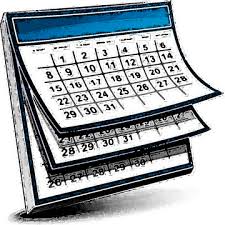Rugby Global Calendar best for all concerned
/ For those unaware, my passion and strong belief for a unified Global Rugby Calendar is something I want to add weight to and hope will come to fruition during my involvement in the sport.
For those unaware, my passion and strong belief for a unified Global Rugby Calendar is something I want to add weight to and hope will come to fruition during my involvement in the sport.
Another meeting held in San Francisco in late Jan 2017 saw comments from Bill Beaumont (Chairman of World Rugby) offer optimism that this may be on track.
"During a positive, collaborative and highly-productive forum, key principles were agreed that will underpin the development of the calendar which has player welfare and the harmony of the international and club game at its heart"
I want to see ideas such as extended international windows for current annual competitions and June/November internationals to be measure of all elite players, agreed club competition seasons dates (my ideas would be Euro Champions Cup and Super Rugby from late Feb-May and domestic leagues such as English, Pro12, Japanese and Currie Cups/NRC/NPC in late July-October, hopefully resulting less player movement, greater opportunities for existing or developing players or agreed dual contracts on global scale) and global off season of December-January.
One of the main ideas for these proposed suggestions and areas surrounding mentioned discussions of player welfare include player burnout. Researchers studying the experiences of individuals in human care settings propose the burnout syndrome consists of three central characteristics: emotional exhaustion, reduced accomplishment and depersonalization (Maslach, 1982). Athlete devaluation to sport, regarded as “perhaps most cognitive of burnout dimensions” (Lemyre, 2006), has strong links to lack of autonomy (such as feelings of choice and self-directedness in sport development) and competence (perceptions of effectiveness in sport or team). Within Lonsdale’s research, he recognised that “self-determined motivation moderates the relationships that competence and autonomy had with exhaustion” (Lonsdale, 2009); both emotional exhaustion and devaluation were related to unfulfilled or lack of self-determined motivations. Ryan and Deci (2000) also believed “physiological need for relatedness may play a more distal role than competence and autonomy”. Hodge’s research echoed “high burnout players (investigated) had lower competence and autonomy scores yet didn’t report different relatedness (connection to others) scores” (Hodge, 2008). Therefore, straight away, the idea of "burned out players" would suggest less autonomy or feeling of control and competence or impact in teams or competitions involved in rather than physical exhaustion. Like I suggest, it's having the all unions of world rugby offer choices of where and when to play rugby to gain some personal sense of achievement, development or connectivity within or external to rugby circles to gain some deeper meaning in player's lives.
Athlete burnout results from “chronically frustrated or unfulfilled basic physiological needs” (Cresswell, 2006), with reduced accomplishment and devaluation featured most prominently and “denotes a negative emotional reaction to sport participation” (Gustafsson, Kenttä, Hassmén, & Lundqvist, 2007). Satisfying these basic needs shall “foster self-determined motivation” (Hollembeak, 2005) and has been associated with “higher self-esteem, higher task engagement and lower anxiety” (Deci, 2001), which allow athletes or players to develop intrinsically defined motivation for goals or development within their sport. Basic needs satisfaction shall also result in positive psychological consequences such as adaptive coping strategies for personal development and flow experiences, ideal for player development and both consequences required for specialising adolescent athletes as part of personal development.
However, intrinsic motivation is not the only reason for lower levels of athlete burnout; Lonsdale’s research found autonomous extrinsic motivations, such as integrated or identified regulators, also resulted in lower levels of athlete burnout. Similar research sees Gustafsson (2007) report findings that team sport male athletes showed higher burnout scores (compared to individual athletes) based on emotional and physical exhaustion and devaluation of coach and co-athletes, while displaying no significant correlation between training volume and burnout scores. Therefore, the emotional support and perceived efficacy in sport is areas coaches can assist for prolonged athlete involvement, retention and engagement, which can be enhanced by understanding of what players’ value and why. Therefore, ideas such as players being able to express a sense of themselves or achieving personal valued outcomes (personal strivings) could be areas to increase athlete engagement to sports or reduce levels of dropout from rugby if adopted or encouraged. The most obvious and current example being David Pocock; having been granted 12 months away from rugby to pursue other goals should see him come back a more determined player, having satisfied other pursuits in his life.
From Gould’s research, he gained ideas for coaches such as cultivating personal involvement with players, offering two way communication, utilizing player input and understanding player’s feelings (Gould, Tuffey, Udry, & Loehr, 1996). Cresswell and Eklund (2006) also found ideas such as enjoyable challenges within rugby, open and free communication with coaches and management alongside few or flexible responsibilities outside sport allowed and encouraged player engagement and reduced burnout or dropout. Coaches and administration staff alike should take note from qualitative investigations which found attributions to burnout symptoms included transitions between competitions or stages in season, which added emotional and mental stress; pressure to comply and perform in elite environments and negative development environments, all areas which could factor and enable greater control for players and coaches alike. I believe many of these issues these could potentially be prevented with a global rugby calendar, offering greater opportunity and choice to those involved in rugby and extending opportunity to enter to the current diverse groups.

